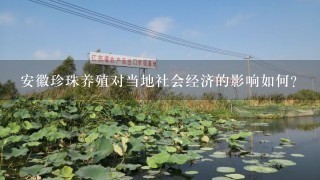安徽珍珠养殖对当地社会经济的影响如何?

Answer:
Positive Impacts:
- Employment generation: The pearl farming industry creates jobs for local residents, including fishermen, boatbuilders, artisans, and tourism workers.
- Income generation: Pearl farming is a significant source of income for coastal communities, especially in areas where other economic opportunities are limited.
- Foreign exchange: Pearl exports generate foreign exchange revenue for the country, boosting the economy.
- Cultural heritage: Pearl farming is an integral part of the local culture and tradition, preserving cultural heritage and traditions.
- Tourism: Pearl farms and surrounding areas can attract tourists interested in learning about pearl cultivation and enjoying the natural beauty of the coast.
Negative Impacts:
- Environmental degradation: Pearl farming can have negative impacts on the marine environment, including habitat destruction, pollution, and overfishing.
- Overexploitation: Overfishing and unsustainable fishing practices can deplete fish stocks and threaten the sustainability of the industry.
- Coastal erosion: The construction of pearl farms and infrastructure can disrupt natural coastal ecosystems and erosion patterns.
- Displacement of local communities: In some cases, pearl farms can displace local communities and disrupt traditional fishing practices.
- Competition from abroad: China and other countries are increasingly involved in pearl farming, putting pressure on local producers to compete for market share.
Overall Impact:
Pearl farming has both positive and negative impacts on the local economy. While it can generate employment, income, and foreign exchange revenue, it can also lead to environmental degradation, overexploitation, and displacement.
Conclusion:
The impact of pearl farming on the local economy is complex and depends on various factors, including the management practices employed by individual farms, the overall environmental conditions, and the socio-economic conditions of the local community.





































































